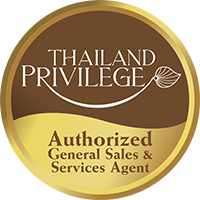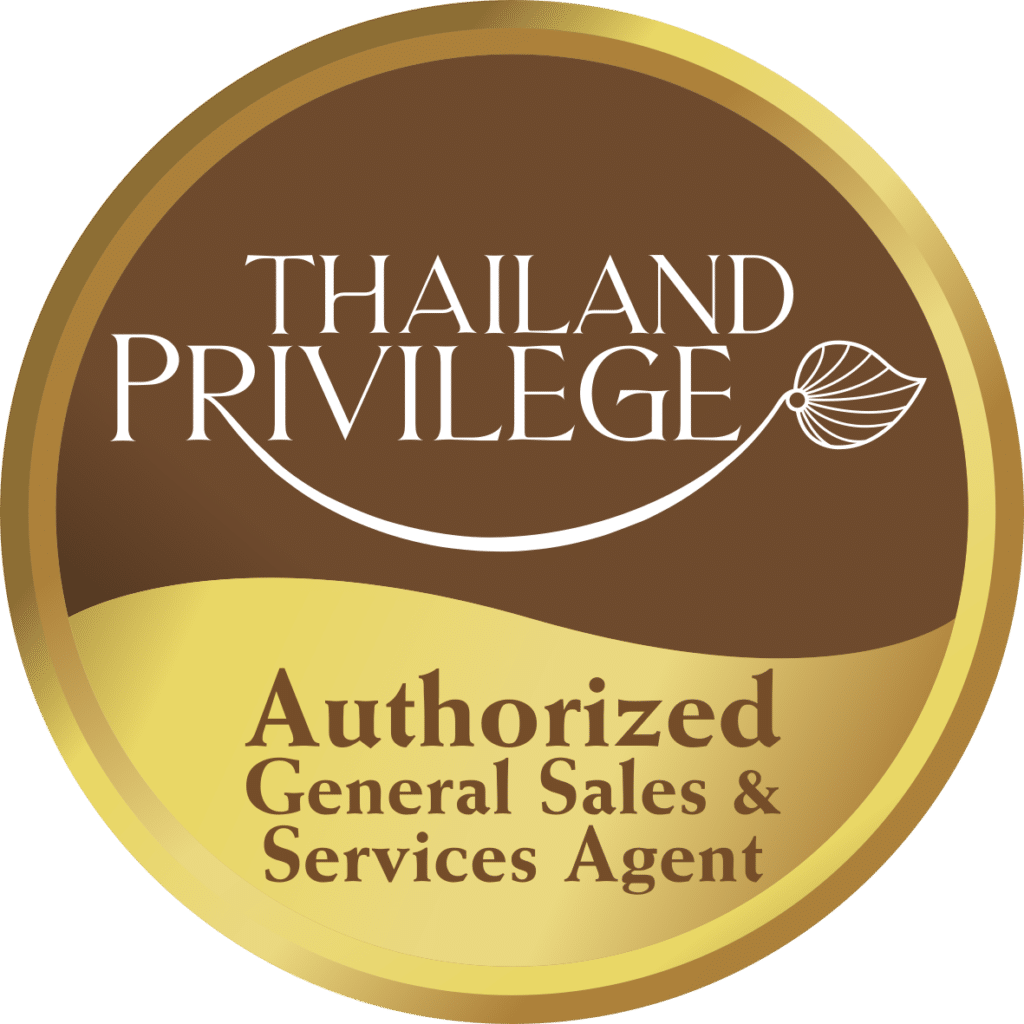Thailand has become a global magnet for digital nomads, entrepreneurs, and retirees.1 With the launch of the revamped Thailand Privilege Card program, many see a golden opportunity: a long-term visa with VIP perks.2 This has led to the billion-baht question: “Can I use my Thailand Privilege Card to work from Thailand?”
The answer is a critical, and often misunderstood, “no.”
This misconception is the single most important rule to understand before you invest in a membership. As of November 2025, let’s clarify the official rules, the real-world “gray area,” and the legal alternatives for those who need to work.
The Short, Official Answer: No
The official stance is unambiguous. The Thailand Privilege Card provides you with a Privilege Entry (PE) Visa, which is categorized as a Special Tourist Visa (STV).3
- This visa does NOT include a Thailand work permit.4
- It is a visa designed for lifestyle, tourism, and long-term, hassle-free stays—not for employment.5
- The Thailand Privilege program’s official limitations state that members are prohibited from securing a work permit under this visa.6
The Big Problem: What Does “Work” Mean in Thailand?
This is where the confusion begins. Most foreigners think “work” means having a desk at a Thai company. Under the Thai Foreign Employment Act, the definition is far, far broader.7
A Very Broad Legal Definition
“Work” is legally defined as “exercising one’s physical energy or employing one’s knowledge, whether or not for wages or other benefits.”8
Technically, this means any productive activity, even volunteering or attending business meetings, could be interpreted as “work.” This is why, legally, you cannot simply arrive on a tourist visa and start working, even if your clients are all overseas.
The “Digital Nomad” & Remote Work Gray Area
So, what about the thousands of digital nomads who are already here, working on their laptops from a Chiang Mai coffee shop?
This is the famous “gray area.” While the law is strict, in practice, enforcement has historically focused on foreigners who are:
- Working for a Thai company without a permit.
- Earning income from Thai sources.
- Taking a job that could be done by a Thai national.
Remote workers whose clients, company, and income are 100% based overseas have largely been left alone. The common (but legally unproven) assumption is that they are not “working in” Thailand but rather “living in Thailand while working abroad.”
The Practical View vs. The Legal Risk
The Thailand Privilege Card is often seen as the “don’t ask, don’t tell” visa for this group. The logic is that by paying a significant membership fee, you are a “premium” tourist who is contributing to the economy and is unlikely to be questioned.
Why Many People Do It
Many remote workers and online entrepreneurs choose the Privilege Card because their work is invisible. They are not employed locally, their income is foreign, and they are not competing in the Thai labor market. They pay their fee for the 5-year visa and the VIP airport service, and they live a quiet, productive life.
The Real Risks: What Happens if You’re Caught?
The “gray area” is a comfortable place… until it isn’t. It’s crucial to understand that while the risk of enforcement for a quiet remote worker may be low, the consequences are high. Working illegally in Thailand (i.e., performing “work” without a work permit) can lead to:
- Heavy fines
- Imprisonment
- Deportation
- Blacklisting (banned from re-entering Thailand)
Who is the Thailand Privilege Card Perfect For?
The card is a poor-fit work visa, but it is the world’s best visa for its intended purpose: hassle-free living. It is the perfect solution for:
- Retirees who are not working at all and want to avoid the annual financial proof of a standard retirement visa.
- Independently Wealthy Individuals living off investments or savings.9
- The “True” Remote Entrepreneur/Investor who is passively managing their overseas business or investments (i.e., checking emails, not engaging in 8-hour workdays).
- Frequent Visitors who want a long-term base and value the VIP airport services above all else.10
The Official Visas for Working: LTR vs. DTV
If your primary goal is to legally work in Thailand, the Privilege Card is the wrong tool. The Thai government has created specific visas for this purpose.11
The Long-Term Resident (LTR) Visa: The “Professional” Choice
This 10-year visa is Thailand’s official program for high-income foreigners. The “Work-from-Thailand Professional” category is specifically for remote workers.
- It INCLUDES a digital work permit.
- It offers significant tax benefits (e.g., exemption on foreign-sourced income).12
- It requires strict proof of high income (e.g., $80,000 USD/year).13
The Destination Thailand Visa (DTV): The “Workcation” Choice
Launched in 2024, this 5-year visa is for a new generation of remote workers.14
- It allows for remote work and “workcations.”
- It is much cheaper and has a lower financial proof requirement (500,000 THB).
- It has a 180-day stay limit per entry, meaning you must exit and re-enter the country twice a year.
| Feature | Thailand Privilege (Gold) | LTR Visa (Remote Worker) | Destination Thailand Visa (DTV) |
| Visa Length | 5 Years | 10 Years | 5 Years |
| Work Permit? | No | Yes (Digital) | Yes (for remote work) |
| Stay Limit | 1 Year (extendable in-country) | 10 Years (no exits needed) | 180 Days (must exit) |
| Key Requirement | 900,000 THB Fee | $80,000/year Income | 500,000 THB Savings |
| Primary Goal | Lifestyle & Convenience | Legal Work & Tax Benefits | Flexible Workcation |
The Final Verdict: A Visa for Lifestyle, Not for Labor
The Thailand Privilege Card is the ultimate solution for a life of convenience, luxury, and long-term stability without bureaucratic hassle.15 It is a visa for living, not for labor.16
If your primary goal is to legally work in Thailand, either for a Thai company or as a high-income remote worker, the correct and more secure path is the LTR Visa or the Non-Immigrant ‘B’ Visa.17
Choosing the Privilege Card for remote work is a calculated risk. It trades the ambiguity of a legal “gray area” for unparalleled ease of use. For many, that’s a risk they’re willing to take. But it is a risk nonetheless.
Frequently Asked Questions
What if I have my Privilege Card but then get a job in Thailand?
You must apply for a Non-Immigrant ‘B’ (Business) visa and a work permit, which will be sponsored by your new Thai employer. Your Privilege membership and its benefits (like airport service) will not be canceled, but your visa status for staying in the country will be based on your Non-B, not your PE visa.
What about the “Flexible Plus” program?
The Privilege program did have a “Flexible Plus” add-on that allowed members to apply for a work permit, but this was a specific program that required an additional $1 million USD investment within Thailand.18 This is not a standard feature of the card.
Can I be a shareholder or director of a Thai company on a Privilege Card?
You can be a passive shareholder.19 You can also be listed as a director, but you cannot be active in that role (i.e., you cannot sign documents, manage operations, or earn a salary in Thailand) without a valid work permit.20 This is a complex legal area, and you should consult a lawyer.
If you want to visit these places regularly, apply for a Thailand Privilege visa on thailandelite.net.
References
- Thailand Board of Investment (LTR Visa):
https://ltr.boi.go.th/ - Thai Embassy Official Site (Visa Info):
https://www.thaiembassy.com/ - Thailand Law Online (Work Permit Info):
https://www.thailandlawonline.com/


